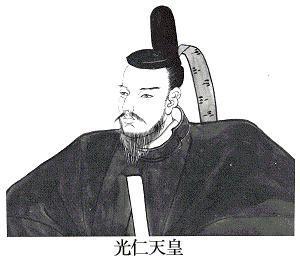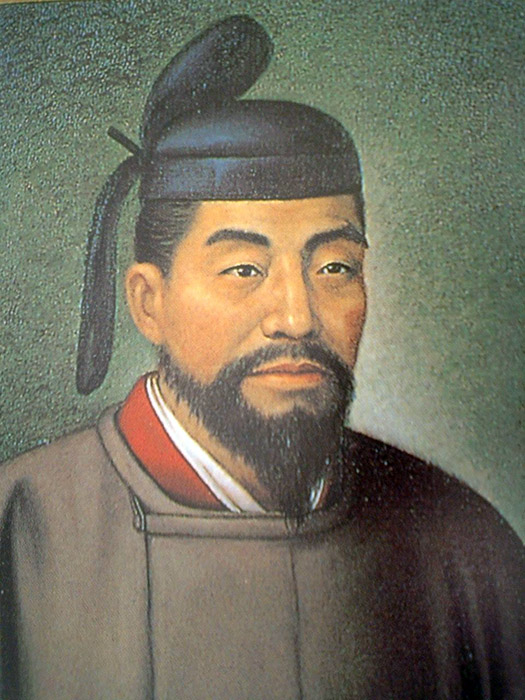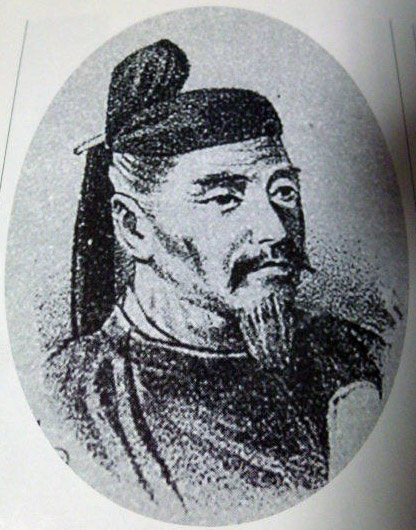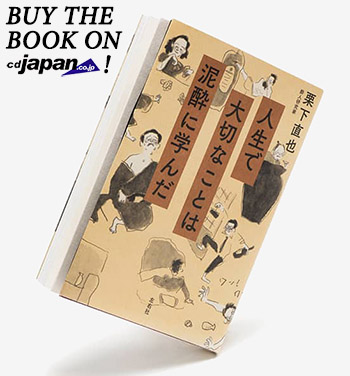Prince Shirakabe
If you’re dragged into a factional dispute
Politician | 18 November 708 – 11 January 782
The absolute biggest cause of concern for your average salaryman has to be changes in personnel.
The number of posts in the workplace is fixed, and consequently some of them are agreeable while others are bound to be much less so. “Relative evaluation” doesn’t exist even as a concept, people’s hopes and expectations are but dust in the wind, and it’s not at all uncommon for there to be personnel changes that make you question the decision makers’ sanity.
And the bigger the organization, the more complicated and bizarre its inner workings become. All salarymen are forced to live in that world of evil spirits of mountains and rivers.
You could even go so far as to saying it’s a matter of “erase or be erased.” In actual fact, it’s a world much like that of Golgo 13 unfolding behind the scenes of these April personnel changes. People erasing others or getting erased themselves, and people sensing that they’re in danger so they try to keep themselves out of harm’s way, running about in a frenzy while neglecting to do their actual job.
According to data by the National Police Agency, there were 84,850 missing persons annually (2017 statistics). Let’s take a closer look at this statistic by cause and motive.
- “Disease-related” at 26.7% is the number one most common cause for people to go missing. (“Dementia” accounts for over 70% of those cases.)
- “Crime”—which probably comes to mind first for most people—surprisingly accounts only for 1.7% of those cases. (There are likely many times more the number of cases that aren’t attributed to “crime” even when they should be, but we’ll leave that aside for now.)
- “Opposite-sex relations” similarly accounts only for 1.9%.
- After “disease-related” and “family relations” (17.5%), the third most common cause is “work/business-related” (11.7%).
“Yonige”—a term referring to the act of running off in the night and leaving your old life behind.
In the past this used to be a regular occurrence, but these days it’s no longer a word you hear very often. But whereas before, when older men from small and medium-sized businesses would run away mostly because of financial difficulties, nowadays it’s surely just the agony of human relations in the workplace that’s causing them to make a run for it.
This is purely conjecture on my part—or more just like a silly idea—but I feel like once a salaryman reaches a certain age or position, they will eventually be dragged into a personnel dispute of one kind or another whether they want it or not.
And unlike in the world of yakuza, there is and there never has been any honor or humanity in the personnel conflicts of salarymen.
Do you know Prince Shirakabe?
Sorry to pry, but I’m only asking because most people don’t know who that is. Were the same question to be asked on Quiz 100nin ni Kikimashita—a TV quiz show from yesteryear—I’m pretty sure only one or two people would say yes. (Although I have a feeling barely anyone now reading this even knows the TV show…)
Prince Shirakabe was the grandson of Prince Nakano Oe (or Emperor Tenji), known for the Taika Reforms. At the point where we pick up this story, the imperial throne was being held by Emperor Shomu and others in Emperor Tenmu’s lineage. Prince Shirakabe was in fact part of a different branch of said lineage, not destined for the throne, but then you just never know how life is going to play out.
When power was seized by Empress Komyo, who was Emperor Shomu’s empress and descendant of the Fujiwara clan, imperial princes who didn’t meet the Fujiwara clan’s demands were being disposed of one after the other.
Empress Komyo gave birth to Prince Motoi, Emperor Shomu’s first-born son. He was happily made the Crown Prince, but he then died the following year. This troubled the Fujiwara clan. They proceeded to ignore the existence of Prince Asaka (Emperor Shomu’s second-born son, birthed by a different woman), and when Prince Nagaya emerged as the heir apparent, they murdered him on suspicion of treason.
A pretty terrifying story so far, but this was only the beginning.
After that, Tachibana no Naramaro, having initiated a political upheaval, had a list of people deemed as possible candidates for heir to the throne. For that reason, he proceeded to execute or exile four members of the imperial family, including Prince Funado. It was a total free-for-all, and the list could be falsified by simply adding names to it. (What sort of a crime is having one’s name on a list anyway?)
All of this is just to say that it was a period in time where if you weren’t a Fujiwara, you weren’t a person at all. If the Fujiwaras saw you as an enemy, they’d find a way to kill you in a totally absurd, TV drama-esque way, or they might frame you for committing some serious crime. It really comes across as an era where only the “protagonists” of the world could survive.
It shouldn’t come as a surprise though—that’s just what life was like in Japan 1,300 years ago. It was a lousy time to be heir to the throne. But although you might be thinking you’re glad to have been born in the current era, one must not forget that similar things are still happening even in this day and age.
Genuinely competent people in the workplace can be transferred to a subsidiary company just because they’re a bit of a complainer, relegated to doing some meaningless task forever. It’s all the same thing in its essence. We humans might not have come such a long way after all.
In any case, due to this internal strife which had led to candidates one after the other being purged, Prince Shirakabe now had a chance at the throne himself. Although he was part of an offshoot of the imperial lineage, he was still the grandson of Emperor Tenji. Be that as it may, the Imperial Court was now a whirlwind of deception. Were he to draw too much attention to himself, he ran the risk of being eliminated by his political opponents.
So what do you suppose he did? If he could become Emperor, then sure, he would’ve loved to do just that. But were he to stand out too much, he was only going to get himself killed. Oh, just what is a man to do?
Prince Shirakabe, troubled as he was, decided he was going to drink heavily every day.
Some of you might be thinking, “…What?” So let me just reiterate as it is important. He drank heavily every day. He drank in a hurried manner, pretending to be a non-threatening, totally ordinary person. According to the Shoku Nihongi history text, Prince Shirakabe drank “almost daily” to keep his ambitions hidden, thus evading crisis time and time again.
Some guy, huh? To those in power, however, he must’ve come across as someone “safe;” someone who wasn’t going to assassinate them in their sleep.
Even in today’s corporate world, you often see these people who make you think, “Why is this guy a board member?” With some of them, you might even have your suspicions that they’ve been taking advantage of the president one way or another to get to where they are. But the fact is that the people who would do such outrageous things, those aren’t the sort of people who actually rise up in the ranks. No, for those in power, what’s valuable to them are people they deem to be harmless; people who would never come across to anyone as “competent.”
Sure, Prince Shirakabe had risen to the rank of Chief Councilor of State. But this was only because he was an elder of the imperial family, and the people around him did not think all that much of him—which was exactly what he wanted.
However, this pretense of mediocrity would lead to an unexpected turn of events.
Emperor Shomu’s daughter, Empress Shotoku, had no heir, and so she sought to name Dokyo—someone with no blood ties to the imperial family—as her successor. (Yes, this was that Dokyo, the famous “bewitching monk who tried to become the emperor.”)
Earlier, when the future-empress had fallen ill during her stay at Hora Shrine on the south bank of Lake Biwa, it was Dokyo who had nursed her back to health, thereby gaining her trust and becoming the highest authority in the Buddhist world. But Dokyo, unable to hide his arrogance brought on by his newly-found political power, was then met with opposition from the nobility, and Empress Shotoku ultimately died without appointing her successor.
Suddenly everyone was going, “Okay, now what do we do?”
Prince Shirakabe—who was still alive as he had never made any enemies—ascended the throne in 770 at the age of 62, becoming Emperor Konin. He was to this day the oldest person to accede to the throne.
In modern times, it would be like if there was a candidate considered for company presidency only because of their bloodline, but they were considered a dark horse because everyone was saying, “There’s no way. That guy’s an alcoholic.” This person, who everyone thought had zero chance, had suddenly become the new president.
But, of course, he wasn’t backed to become Emperor just because he was a seemingly-ordinary old guy whose breath stank of stale liquor.
Another deciding factor was him being married to Emperor Shomu’s daughter, Princess Inoe. They had a child together, Prince Osabe, and because their son was a descendant of Emperor Shomu, the then-leader of Fujiwara clan, Fujiwara no Nagate, eventually wanted him to become the emperor. Thus, he had his father, Prince Shirakabe, take the throne.
That’s right. Prince Shirakabe’s enthronement came to him as a free gift with his child.
Still, free gift or not, the emperor is the emperor. That’s nothing to sneeze at. Had he not kept his head down and played the fool, he would never have lived long enough to even be considered as a candidate.
Sure, living your life with a kind of swagger is one way to do it. But the “Prince Shirakabe Model”—pretending to be mediocre, not making any enemies, just swimming your way through the organization—is another approach the salaryman should consider adopting, too. (Although if someone truly is mediocre, then there’s just no helping them.)
Fujiwara no Nagate, who had endorsed Prince Shirakabe becoming the new emperor, would pass away the year following his enthronement.
Fujiwara no Momokawa, newly in power, then deposed Princess Inoe (Prince Shirakabe’s wife) and stripped Prince Osabe of his title of Crown Prince. It was a total negation of Fujiwara no Nagate’s work. Claiming they had “put a curse on the emperor,” the two were imprisoned on these totally trumped-up charges, and three years later they would both die at the same time by what is generally believed to have been assassination.
Erasing all traces of one’s predecessor is similarly commonplace practice in the 21st century corporate world, too. We humans really haven’t come very far at all.
Momokawa then made Prince Yamabe—Prince Shirakabe’s first son—the Crown Prince. His mother was of foreign descent, so realistically speaking he should’ve had no hope of ever actually becoming the emperor. But, as they used to say back in the day, good things come to those who wait. And this surely is a story from “back in the day.”
In 781, Emperor Konin (Prince Shirakabe) abdicated in favor of his son. And so, Prince Yamabe became Emperor Kanmu, who would later be known for having the capital of Japan moved to Heian-kyo.
On a side note, every year on January 23rd (a month after the death anniversary of Emperor Konin), the Daian-ji Temple in Nara holds something called the Sasazake Matsuri, a festival where people drink heated sake poured out of green bamboo tubes in hopes of good health.
Legend says that Emperor Konin led such a long life because he had himself enjoyed drinking alcohol from bamboo on the grounds of Daian-ji, and the people who attend this event are trying to share in his good luck. It’s a seasonal story covered in the newspapers every year.
Those of you who have read this far along might be thinking, “Hey now, wait a minute…”
So he wasn’t just drinking in an attempt to feign mediocrity—he kept on chug-a-lugging like nothing had changed even after his accession to the throne. At the end of the day, the guy just liked to drink!




